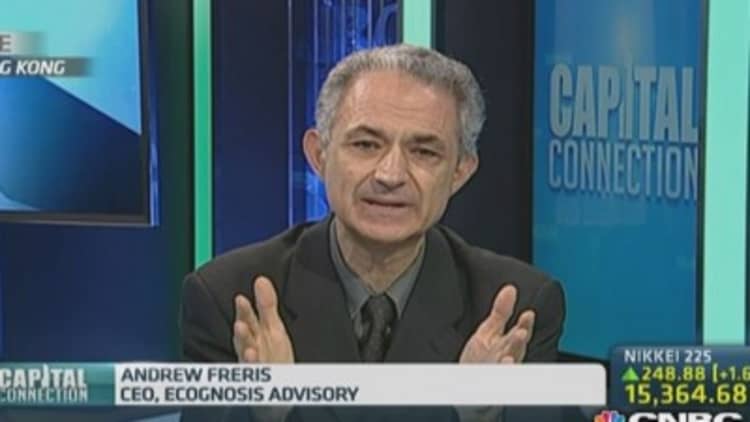Due to factors ranging from politics to property, Asian stock markets put in a largely mixed performance during the first half of 2014.
Indian equities were the star performers in the region, with election euphoria propelling the benchmark BSE Sensex up 20 percent in the first six months of the year. Prime Minister Narendra Modi's historic victory in May's general elections was the source of optimism among investors who believe the new decisive leader will awaken Asia's sleeping giant.
Read MoreIs this the new mantra for EM investors?
"You have political change, the economic environment seems to be improving and there is likely to be resurgence of the investment cycle. There's a lot of hope there among investors – and this is likely to continue into the second-half as well," Hans Goetti, head of investment, Asia at Banque Internationale a Luxembourg told CNBC.
Running close behind was Philippine's stock market which surged over 16 percent, while Indonesian equities took third place, gaining 14 percent ahead of the country's presidential election on July 9.
By contrast, Japanese stocks were the region's laggards, down 7 percent year-to-date, amid doubts about the effectiveness of the country's radical economic policies, widely known as "Abenomics."
Still, sentiment towards Japanese equities improved in the past month as the government has started acting on its promise to deliver long-term economic reforms. The benchmark Nikkei 225 rose 3.6 percent in June.

Last week, Prime Minister Shinzo Abe fleshed out details of his long-awaited growth strategy, calling for corporate tax rate cuts, a bigger role for women and foreign workers and an easing of long-standing regulations in areas such as agriculture and health care.
Read MoreJapan's Abe unveils 'Third Arrow' of reforms
Abe also pushed for the country's pension funds to buy more risky assets – such as stocks – and rely less on low-yielding government bonds.
"Since May, we've seen Japanese trust banks (which manage a large proportion of public pension funds) shifting more money into equities; that to me says the government wants higher equity prices. This could pull skeptical foreigners back into the market," Goetti said.
In China, where the benchmark Shanghai Composite is down over 3 percent year-to-date, concerns over a slowdown in the all-important property market have kept investors on edge, even as data showed a stabilizing economy.
"Positive data has been overshadowed by property slump concerns – we need to see a turnaround in property prices in order for confidence to be restored," said Ryan Huang, market strategist at IG said.
Read MoreIs it time to go outright bullish on China?
Uncertainty over the outlook for the world's second largest economy has weighed on the equity markets of major trading partner Australia, where stocks stayed flat for the year.
"In Australia, resource stocks are the key driver there. So the performance of the market going forward will depend on what's happening in China," Goetti said.


